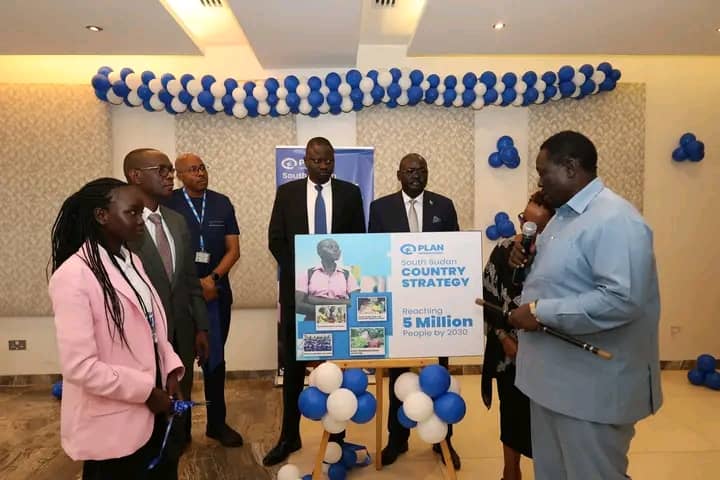SOUTH SUDAN: Plan International Launches Five-Year Initiative To Empower 5 Million Individuals

By Deborah Akur Chol, South Sudan
Plan International South Sudan has unveiled its ambitious country strategy for the years 2025 to 2030, aiming to empower 5 million young individuals with a particular focus on children and girls.
This initiative is built on four strategic pillars: education, protection, economic empowerment, and humanitarian response.
During the launch, Country Director Paul Lusato emphasized the organization’s commitment to advancing the well-being of youth, stating, “Our strategy is both ambitious and attainable, centred around the needs of children.”
Lusato detailed the four core areas of focus: inclusive quality education, safeguarding against violence, fostering youth leadership and economic opportunities, and scaling up humanitarian efforts through cross-border initiatives.
The strategy also highlights three advocacy priorities that include promoting girls’ education, combating child marriage, and empowering young individuals as peace ambassadors.
“We’re launching this strategy in the midst of global uncertainties, including funding limitations, geopolitical tensions, and an evolving humanitarian landscape,” Lusato noted. “Yet, within each challenge lies an opportunity. South Sudan has shown remarkable resilience, and today, we reaffirm our dedication to adaptability, innovation, and decisive actions to navigate these complexities as we pursue our mission.”
Kachuol Mabil, Undersecretary at the Ministry of General Education and Instruction, expressed support for the strategic plan, commending its emphasis on girls’ education, child protection, youth leadership, and humanitarian initiatives He articulated his hopes for the country’s youth, stating, “This strategy is more than just a document; it represents a commitment that no girl should face forced marriage and that every child deserves access to quality education, clean water, and a safe environment.”
Mobil reiterated the government’s commitment to collaborate with Plan International and other partners to develop policies that protect children, enhance education, and facilitate partnerships for sustainable change.
Minister of Agriculture and Food Security, Hussein Abdelbagi, emphasized the strategy’s timely relevance, aligning with the nation’s goals for sustainable recovery, development, and resilience. He expressed support for the initiative’s focus on improving livelihoods, which he believes is crucial for addressing food security and rural development.
“This vision resonates strongly with our national agenda of building an equitable, inclusive society where no one is overlooked,” Abdelbagi asserted. “The emphasis on livelihoods and resilience is essential as we strive to promote food security and empower communities.”
The strategic plan aims to positively impact 5 million people by 2030, encompassing 2 million women, 1.6 million children and young people, and 1.4 million girls and young women, thereby reinforcing the commitment to foster an inclusive future for all.
categories
recent posts


Mali’s Political Journey To Rising Unrest

MALWI: Economist Challenges Role Of Donor Funding In Africa’s Health Systems

MALAWI: Waste Piles Threaten Sanitation At Kasalasala Market

